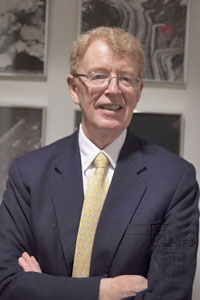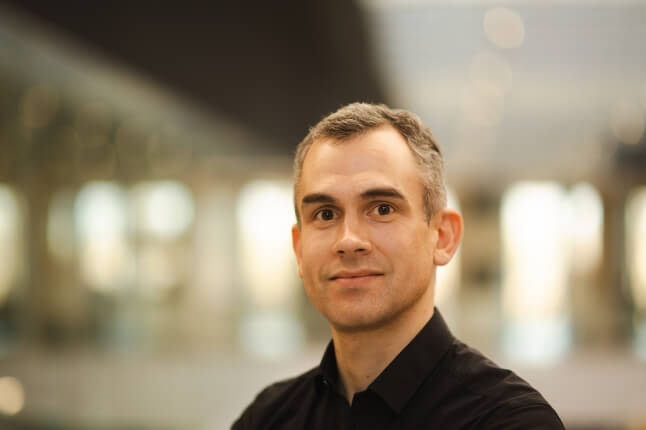News
Seven grants have been awarded in the inaugural year of President Drew Faust’s Climate Change Solutions Fund. The projects reflect the University’s longstanding commitment to supporting collaborative solutions to the climate challenge across a wide range of disciplines. (Photo by Justin Ide.)
Seven research projects aimed at confronting the challenge of climate change using the levers of law, policy, and economics, as well as public health and science, have been awarded grants in the inaugural year of President Drew Faust’s Climate Change Solutions Fund.
“Climate change poses a serious threat to the future of our planet,” Faust said. “Universities have a critical role to play in generating innovations that will lead the transition to clean, affordable, and renewable energy sources, and Harvard is committed to advancing such efforts as we continue to serve as a model of sustainability for institutions around the world.”
Last year, Faust announced the creation of the $20 million Climate Change Solutions Fund in order to hasten the transition from carbon-based energy systems to those that rely on renewable energy sources, and to propel innovations needed to accelerate progress toward cleaner energy and a greener world. The inaugural round of awardees reflects the University’s longstanding commitment to supporting collaborative solutions to the climate challenge across a wide range of disciplines.
“Harvard has the capacity and responsibility to address the challenge of climate change boldly and with conviction,” said Vice Provost for Research Richard McCullough, whose office administers the fund. “Shaping a more sustainable future, both on and off our campus, will depend on the insights of our scientists and engineers, as well as our experts across a wide range of disciplines from public policy, law, business, economics, and health.”
The seven winners and their projects are:
- Jose Guillermo Cedeno Laurent, research fellow, Harvard T.H. Chan School of Public Health: Sustainable Adaptation Measures to Extreme Heat Events;
- Emily Broad Leib, lecturer, Harvard Law School: Reducing Food Waste as a Key to Addressing Climate Change;
- Michael McElroy, professor, School of Engineering and Applied Sciences: Harvard-China Partnership for Low-Carbon Energy Policy;
- Daniel Nocera, professor, Faculty of Arts and Sciences: Patterning Silicon with Catalysts for High Efficiency Solar-to-Fuels Conversion;
- Rohini Pande, professor, Harvard Kennedy School: Market-Based Policy Design to Mitigate Climate and Local Air Pollution in India;
- Jisung Park, Ph.D. candidate, Graduate School of Arts and Sciences: The Critical Moment: Climate Means Versus Weather Extremes in the Economics of Climate Change;
- James Stock, professor, Harvard Kennedy School: Investigation of Market Impediments to Biofuels Penetration.
Approximately $800,000 in grants was awarded.
As a result of rapid economic growth, India’s greenhouse-gas emissions now rank third in the world, and the country is increasingly seen as an integral player in upcoming discussions for a global pact on climate change. A collaborative research project in three Indian states led by Professor Rohini Pande and colleagues at the University of Chicago and Yale University is laying the foundation for improved monitoring and the possibility of tradable markets for particulate matter emissions from the industrial sector, which can have key climate co-benefits.
For her project, Pande, the Mohammed Kamal Professor of Public Policy and co-director of the Evidence for Policy Design Initiative at the Kennedy School, is partnering with central and state government environmental regulators to provide “proof of concept” for continuous emissions monitoring of industrial plants that would provide the baseline data necessary for the design of a market for emissions trading of climate pollutants. The key, she says, is to confront the problem at the local level.
“Countries where growth is an important objective care about the impact of local air pollution on public health,” Pande explained. “The productivity losses and associated impact on the economy can be very high if countries like India are not accounting for pollution.”
Pande’s research builds on the success of a pilot project in the state of Gujarat, where her team collaborated with regulators to rigorously evaluate the benefits of changing the system for emissions auditing by having auditors randomly assigned to industrial plants by regulators, rather than directly hired and paid by the firms on which they report. The reform resulted in more accurate data being collected and an eventual reduction in pollution from smokestacks.
In addition to Pande’s research in India, the Fund will support an ongoing research program led by Professor Michael McElroy to partner with China, the world’s second-largest emitter of carbon emissions, in developing a low-carbon energy policy. The award will strengthen work across four Schools to investigate options for renewable energy, reducing carbon emissions, and reducing air pollution to improve public health.
Read more about the seven projects receiving support in the Harvard Gazette
Topics: Environment, Climate
Cutting-edge science delivered direct to your inbox.
Join the Harvard SEAS mailing list.
Scientist Profiles
Michael B. McElroy
Gilbert Butler Professor of Environmental Studies



